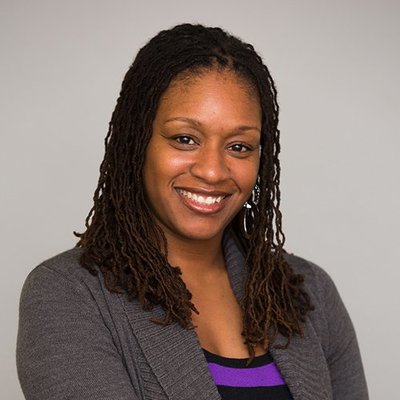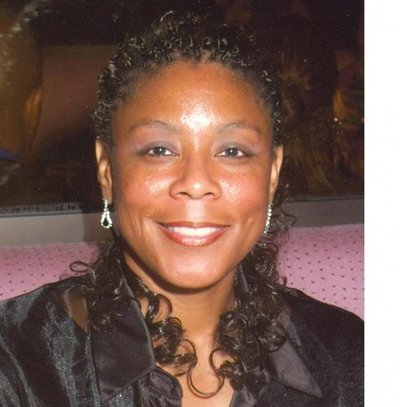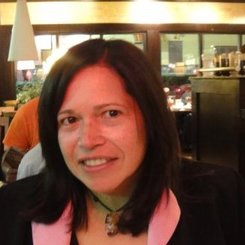African American Students
Scroll below to select research from the following scholars
 @dr_tstrozier
@dr_tstrozier
Dr. Tonya R. Strozier @dr_tstrozier
Title: Principal/Independent Researcher
Research Topic: Culturally Relevant Feedback to African Americans in Mathematics
Institution: Grand Canyon University
Committee Chair: Scott Greenberger, Ed.D.
Abstract: Teacher feedback has a strong correlation to math achievement. However, teachers need to be conscious of the type of feedback given to students during math instruction. Using a qualitative descriptive study and culturally relevant pedagogy theory, the study explores how Arizona elementary teachers describe the development of their culturally relevant pedagogy in providing feedback to students. And how culturally relevant pedagogy is used in providing feedback specifically to African American third through fifth grade elementary students during math instruction. Semi- structured interviews, with 13 culturally relevant teachers and a focus group of four additional teachers, were used to collect data. The findings of the study suggest culturally relevant teachers develop: (a) sub skills in cultural competence, critical consciousness, and academic success, (b) a disposition for CRP teacher praxis, and (c) primarily through teacher self-initiated strategies. In using culturally relevant feedback (CRF) teachers: (a) employ a teacher-based context, (b) use African American culture, and (f) have specific strategies to deliver corrective and disciplinary feedback to African American students during math instruction. The results highlight the importance of providing CRF.
Click the link below to download the study.
Title: Principal/Independent Researcher
Research Topic: Culturally Relevant Feedback to African Americans in Mathematics
Institution: Grand Canyon University
Committee Chair: Scott Greenberger, Ed.D.
Abstract: Teacher feedback has a strong correlation to math achievement. However, teachers need to be conscious of the type of feedback given to students during math instruction. Using a qualitative descriptive study and culturally relevant pedagogy theory, the study explores how Arizona elementary teachers describe the development of their culturally relevant pedagogy in providing feedback to students. And how culturally relevant pedagogy is used in providing feedback specifically to African American third through fifth grade elementary students during math instruction. Semi- structured interviews, with 13 culturally relevant teachers and a focus group of four additional teachers, were used to collect data. The findings of the study suggest culturally relevant teachers develop: (a) sub skills in cultural competence, critical consciousness, and academic success, (b) a disposition for CRP teacher praxis, and (c) primarily through teacher self-initiated strategies. In using culturally relevant feedback (CRF) teachers: (a) employ a teacher-based context, (b) use African American culture, and (f) have specific strategies to deliver corrective and disciplinary feedback to African American students during math instruction. The results highlight the importance of providing CRF.
Click the link below to download the study.
| culturally_relevant_feedback_to_african_americans_in_mathematics.pdf | |
| File Size: | 2797 kb |
| File Type: | |
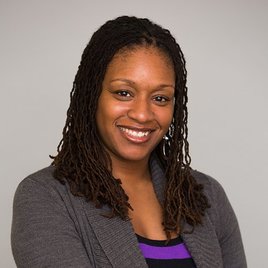
Dr. Pamela Antoinette Larde
Title: Associate Professor Mercer University
Research Topic: Inspired to be the First: Factors that Predispose African American and Mexican American First-Generation Students to Pursue Higher Education
Institution: Cardinal Stritch University
Committee Chair: Nancy Stanford Blair, Ph.D
Abstract: It is well documented that students whose parents did not attend college are less likely to pursue a college education than their peers. Yet, many find ways to get to college despite the odds that stand against them: poor academic preparation, limited financial resources, a lack of college knowledge, and debilitating cultural norms and minimal moral support. This phenomenological study explored the pre-college experiences of 17 successful African American and Mexican American first-generation college students to develop a greater understanding of their journey to higher education. Self-determination was an important component contributing to the students’ ability to secure moral support, achieve academic success, and acquire practical information needed to matriculate into college. Participants demonstrated a sense of competence, autonomy, and relatedness, all of which must be fulfilled to maintain a self-determined disposition (Ryan & Deci, 2000). Findings further revealed a set of strategies and characteristics that may collectively increase the odds for disadvantaged high school students who want to pursue a college education. Based on these findings, a college predisposition model is proposed to inform parents, institutions of higher education, secondary schools and pre-college programs in their efforts to increase the college-going rates of potential first-generation students.
Click the link below to download the study.
Title: Associate Professor Mercer University
Research Topic: Inspired to be the First: Factors that Predispose African American and Mexican American First-Generation Students to Pursue Higher Education
Institution: Cardinal Stritch University
Committee Chair: Nancy Stanford Blair, Ph.D
Abstract: It is well documented that students whose parents did not attend college are less likely to pursue a college education than their peers. Yet, many find ways to get to college despite the odds that stand against them: poor academic preparation, limited financial resources, a lack of college knowledge, and debilitating cultural norms and minimal moral support. This phenomenological study explored the pre-college experiences of 17 successful African American and Mexican American first-generation college students to develop a greater understanding of their journey to higher education. Self-determination was an important component contributing to the students’ ability to secure moral support, achieve academic success, and acquire practical information needed to matriculate into college. Participants demonstrated a sense of competence, autonomy, and relatedness, all of which must be fulfilled to maintain a self-determined disposition (Ryan & Deci, 2000). Findings further revealed a set of strategies and characteristics that may collectively increase the odds for disadvantaged high school students who want to pursue a college education. Based on these findings, a college predisposition model is proposed to inform parents, institutions of higher education, secondary schools and pre-college programs in their efforts to increase the college-going rates of potential first-generation students.
Click the link below to download the study.
| larde-final-draft-4-30-09.pdf | |
| File Size: | 1283 kb |
| File Type: | |
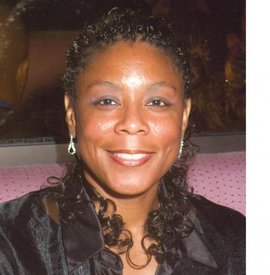
Dr. Charemi A. Jones
Title: Law Enforcement Training and Curriculum Assessment
Research Topic: In the Service of What? A Phenomenological Exploration of African American High School Students’ Self-Efficacy in Service Learning
Institution: DePaul University
Committee Chair: Gaye Mindes, Ed.D.
Abstract: This phenomenological study explored how African American high school students from a large Midwestern city make meaning of their service learning experiences within the framework of mandated service learning participation required for high school graduation, and how their lived experiences inform their self-efficacy development. Scholars have previously posited, “student voice in service learning projects positively correlated with improved self-concept, political engagement, and tolerance” (Morgan and Streb, 2001). Within this context, voice is synonymous with students’ self- reflection. One-on-one semi-structured interviews were conducted utilizing a pre-printed protocol consisting of open-ended questions designed to elicit authentic responses, allowing the voice of the student to emerge in the narrative. Data was drawn from transcribed interviews. Manual data analysis and Computer Assisted Qualitative Data Analysis (CAQDA analysis) utilizing several modalities and incorporating multiple analytic qualitative and quantitative methods including: frequency counts, relational matrices, and similarity analysis were conducted to identify three primary code constructs: self-efficacy, altruism, and graduation requirement.
Utilizing the lens of culturally relevant pedagogy (CRP) of place (CRPP) grounded in critical race theory (CRT) to critically observe and present authentic interpretation of the lived experiences revealed through the students’ narratives (Brown-Jeffy & Cooper, 2011; Solórzano & Yosso, 2002), three emergent themes were developed that contextualized the students’ lived experiences and informed their understanding of the “purpose” behind their participation in service learning: 1) perceptions of student social and emotional development; 2) perceptions of student altruism; and 3) connection between service learning project participation and fulfilling the compulsory graduation requirement. The study revealed the evolutionary history of youth civic engagement, presenting the theoretical outline of how a citizen is constructed, and explaining how research reflects African American students’ “traditional” participation in service learning. Using a CRP lens, notwithstanding the extrinsic motivation of service learning participation through a compulsory graduation requirement, the lack of a culturally relevant curriculum with no connection to the students’ lived experiences or home-community, still yielded African American students who reflected high self-efficacy, high altruism, and displayed intrinsic motivation towards philanthropy. Future research recommendations include conducting a longitudinal study and to make closer student home-community connections to the curriculum.
Click the link below to download the study.
Title: Law Enforcement Training and Curriculum Assessment
Research Topic: In the Service of What? A Phenomenological Exploration of African American High School Students’ Self-Efficacy in Service Learning
Institution: DePaul University
Committee Chair: Gaye Mindes, Ed.D.
Abstract: This phenomenological study explored how African American high school students from a large Midwestern city make meaning of their service learning experiences within the framework of mandated service learning participation required for high school graduation, and how their lived experiences inform their self-efficacy development. Scholars have previously posited, “student voice in service learning projects positively correlated with improved self-concept, political engagement, and tolerance” (Morgan and Streb, 2001). Within this context, voice is synonymous with students’ self- reflection. One-on-one semi-structured interviews were conducted utilizing a pre-printed protocol consisting of open-ended questions designed to elicit authentic responses, allowing the voice of the student to emerge in the narrative. Data was drawn from transcribed interviews. Manual data analysis and Computer Assisted Qualitative Data Analysis (CAQDA analysis) utilizing several modalities and incorporating multiple analytic qualitative and quantitative methods including: frequency counts, relational matrices, and similarity analysis were conducted to identify three primary code constructs: self-efficacy, altruism, and graduation requirement.
Utilizing the lens of culturally relevant pedagogy (CRP) of place (CRPP) grounded in critical race theory (CRT) to critically observe and present authentic interpretation of the lived experiences revealed through the students’ narratives (Brown-Jeffy & Cooper, 2011; Solórzano & Yosso, 2002), three emergent themes were developed that contextualized the students’ lived experiences and informed their understanding of the “purpose” behind their participation in service learning: 1) perceptions of student social and emotional development; 2) perceptions of student altruism; and 3) connection between service learning project participation and fulfilling the compulsory graduation requirement. The study revealed the evolutionary history of youth civic engagement, presenting the theoretical outline of how a citizen is constructed, and explaining how research reflects African American students’ “traditional” participation in service learning. Using a CRP lens, notwithstanding the extrinsic motivation of service learning participation through a compulsory graduation requirement, the lack of a culturally relevant curriculum with no connection to the students’ lived experiences or home-community, still yielded African American students who reflected high self-efficacy, high altruism, and displayed intrinsic motivation towards philanthropy. Future research recommendations include conducting a longitudinal study and to make closer student home-community connections to the curriculum.
Click the link below to download the study.
| emailing_isow_cajones02-08-2016__2_.pdf | |
| File Size: | 9149 kb |
| File Type: | |
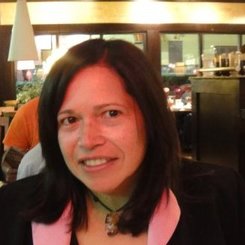
Dr. Denise Mayo Moore
Title: Director, Bachelor in Social Work program at Touro University Worldwide
Research Topic: Evaluation of a Literacy Program Addressing Third Grade African American Struggling Readers
Institution: Walden University
Committee Chair: Dr. Steven Little
Abstract: School districts are accountable for students achieving grade-level literacy standards. However, many 3rd grade students in Sun Valley Lake, New Jersey, are not achieving the No Child Left Behind literacy standard of proficient, which is defined as reading on grade level. The purpose of this quantitative study was to investigate whether the Success Program was effective at engaging struggling 3rd grade African American students in a supplemental literacy program that can be replicated by school districts with similar demographics. The Success Program’s theoretical underpinnings are grounded in Vygotsky’s socio-cultural theory and the Zone of Proximal Development. These theoretical frameworks are supported by the Response To Intervention model, upon which the Success Program is based, and the Resilience model. One-hundred students from 2 consecutive school years (2010-2011 and 2011-2012) were selected using a nonprobability criterion sampling, which dictates a quasi-experimental design using a pretest and posttest method. The results are presented through descriptive statistics and MANCOVA. According to study results, for each school year, the 50 students who participated in the Success Program achieved statistically significant higher scores than the 50 students who did not participate for all 4 study variables: reading comprehension, oral reading fluency, instructional reading level, and sight word recognition. The quantitative data indicated the Success Program is a viable intervention. This study leads to positive social change by providing educators in Sun Valley Lake, as well as the additional 30 Abbott New Jersey school districts and similar other districts, strategies to increase the literacy skills of 3rd grade African American students.
Click the link below to download the study.
Title: Director, Bachelor in Social Work program at Touro University Worldwide
Research Topic: Evaluation of a Literacy Program Addressing Third Grade African American Struggling Readers
Institution: Walden University
Committee Chair: Dr. Steven Little
Abstract: School districts are accountable for students achieving grade-level literacy standards. However, many 3rd grade students in Sun Valley Lake, New Jersey, are not achieving the No Child Left Behind literacy standard of proficient, which is defined as reading on grade level. The purpose of this quantitative study was to investigate whether the Success Program was effective at engaging struggling 3rd grade African American students in a supplemental literacy program that can be replicated by school districts with similar demographics. The Success Program’s theoretical underpinnings are grounded in Vygotsky’s socio-cultural theory and the Zone of Proximal Development. These theoretical frameworks are supported by the Response To Intervention model, upon which the Success Program is based, and the Resilience model. One-hundred students from 2 consecutive school years (2010-2011 and 2011-2012) were selected using a nonprobability criterion sampling, which dictates a quasi-experimental design using a pretest and posttest method. The results are presented through descriptive statistics and MANCOVA. According to study results, for each school year, the 50 students who participated in the Success Program achieved statistically significant higher scores than the 50 students who did not participate for all 4 study variables: reading comprehension, oral reading fluency, instructional reading level, and sight word recognition. The quantitative data indicated the Success Program is a viable intervention. This study leads to positive social change by providing educators in Sun Valley Lake, as well as the additional 30 Abbott New Jersey school districts and similar other districts, strategies to increase the literacy skills of 3rd grade African American students.
Click the link below to download the study.
| mayomoorefinalb.pdf | |
| File Size: | 1182 kb |
| File Type: | |

Dr. Arvenita Washington Cherry
Title: Founding Scholar-in-Residence American Anthropological Association, Prince George's African American Museum and Cultural Center
Research Topic: Reading, Writing and Radicalization: The Social Construction of Blackness for Students and Educators in a Prince George's County Public Middle School
Institution: The American University
Committee Chair: Dr. Sabiyha Prince
Abstract: We do not fully understand how people of African descent, both in the United States and foreign born, conceptualize their integration into the predominantly “Black space” of Prince George’s County or if and how the constituents of Black spaces are conceived of as diverse. Furthermore, we do not know enough about how these processes operate in the public school setting. This dissertation focuses on interrogating the public institution of Prince George’s County Public Schools to examine how students and educators construct, negotiate, challenge, and reproduce notions of Blackness. The first research question is “how do youth of African descent, including the U.S. born children of immigrants and those with a Spanish ethno-linguistic heritage, construct or deconstruct a Black identity in a United States context”? The second large area of inquiry asks “how are educators influencing social constructions of Blackness”? There is also a focus on if and how the educational process acknowledges and responds to complex dynamics among students, how they identify, and how they get identified racially, ethnically, and culturally by others. I investigate this quandary by using ethnographic data conducted over a seventeen month span in a middle school. I find that all people in the school, with an intentional focus on students of African descent with a Spanish ethno-linguistic heritage are engaged in their own dialogues and complex constructions of what it means to be Black'
Click the link below to download the study.
Title: Founding Scholar-in-Residence American Anthropological Association, Prince George's African American Museum and Cultural Center
Research Topic: Reading, Writing and Radicalization: The Social Construction of Blackness for Students and Educators in a Prince George's County Public Middle School
Institution: The American University
Committee Chair: Dr. Sabiyha Prince
Abstract: We do not fully understand how people of African descent, both in the United States and foreign born, conceptualize their integration into the predominantly “Black space” of Prince George’s County or if and how the constituents of Black spaces are conceived of as diverse. Furthermore, we do not know enough about how these processes operate in the public school setting. This dissertation focuses on interrogating the public institution of Prince George’s County Public Schools to examine how students and educators construct, negotiate, challenge, and reproduce notions of Blackness. The first research question is “how do youth of African descent, including the U.S. born children of immigrants and those with a Spanish ethno-linguistic heritage, construct or deconstruct a Black identity in a United States context”? The second large area of inquiry asks “how are educators influencing social constructions of Blackness”? There is also a focus on if and how the educational process acknowledges and responds to complex dynamics among students, how they identify, and how they get identified racially, ethnically, and culturally by others. I investigate this quandary by using ethnographic data conducted over a seventeen month span in a middle school. I find that all people in the school, with an intentional focus on students of African descent with a Spanish ethno-linguistic heritage are engaged in their own dialogues and complex constructions of what it means to be Black'
Click the link below to download the study.
| arvenita_washington_dissertation.pdf | |
| File Size: | 1484 kb |
| File Type: | |

